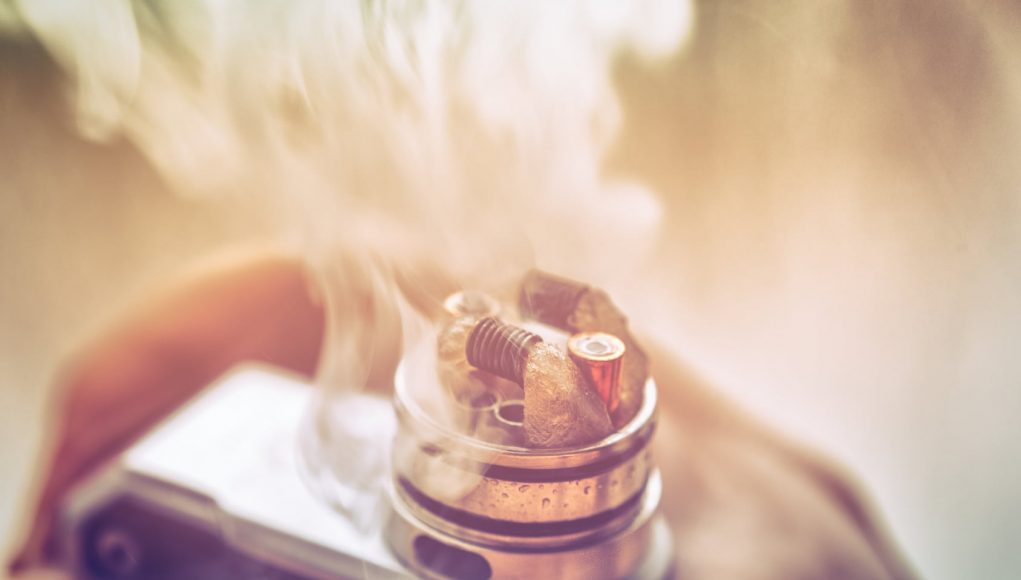Flavour ban moves forward in Senate with FDA support
Legislation that could ban all flavoured e-liquids across the USA is moving forward in the Senate, with active backing from the Food and Drug Administration. The bill, which is being pushed by Senator Lisa Murkowski (R-AK), has already been rejected once – but Murkowski hopes that FDA support will help it get through this time.
According to Murkowski, it’s “evident” that flavoured e-cigs are turning children into smokers. While around one US high school student in every five has tried vaping, the number who vape regularly is closer to 2% – showing a similar pattern of experimentation as those which apply to smoking, alcohol, drugs and sex. There is quite simply no evidence of any gateway into smoking through e-cigarettes, flavoured or otherwise.
Nevertheless, Murkowski wants to make it illegal to sell flavoured products unless manufacturers can prove that they don’t increase youth smoking. Apart from the difficulty of proving a negative in any circumstances this is a reversal of the burden of proof that underpins American law.
Ohio anti-vape activists step up the lies
A Cincinatti healthcare company launched a propaganda war against tobacco harm reduction last week, when a spokeswoman unleashed an astonishing volley of false claims in a media interview. Joyce Jacobs, who claims to be a “tobacco treatment specialist”, told WKRC News an array of nonsense that ranged from addiction to antifreeze.
According to Jacobs, e-cigarettes have “high nicotine levels” that make people get addicted much faster than smoking does. This should be enough to demonstrate that Jacobs knows almost nothing about nicotine; the evidence suggests that it’s only addictive when delivered in tobacco smoke. It’s also grossly untrue to claim nicotine levels are higher with vaping. In fact delivering as much nicotine as a cigarette has been a major challenge for the industry, and it’s only recently – with the introduction of nicotine salts – that vapour products have started to get anywhere close.
Jacobs went on to say there’s no water in e-liquid, “but there is oil”. Again this is a straightforward lie, as is her claim that the risks from vaping may be worse than smoking. She finished her discussion with a rambling suggestion that anyone wanting to quit vaping using nicotine patches should wear two patches, “because of the higher nicotine levels”.
New study claims e-cigs are “loaded with germs”
Researchers at Harvard University claim to have discovered that e-liquid is a festering hotbed of microbes. According to their new paper, 23% of the 75 products they tested contain bacterial toxins and 81% contained fungus.
While this seems alarming at first glance, some perspective is needed. A cubic metre of fresh air in a clean home contains around 60 fungal spores – this can be easily tested by pouring some tomato soup into a bowl, leaving it standing for ten minutes, then covering it and having another look three days later. Bacteria, most of which produce toxins, are literally everywhere. The good news is that the propylene glycol in e-liquid is a potent bactericide, so any bacteria that make it into your vape will quickly die.
Anecdotal evidence from vapers suggests that, after switching to vaping, they experience a sharp decrease in respiratory infections. This is likely a beneficial side-effect of inhaling PG. While the Harvard study is interesting there’s no evidence that vaping increases vulnerability to any form of infection.
US vape hysteria is giving young people criminal records
With the US moral panic about vaping showing no signs of subsiding, thousands of teenagers are facing legal consequences that could impact on their futures. As states adopt draconian bans on teen vaping the court system is becoming clogged with young people facing fines or community service over trivial “offences” such as possessing an e-cigarette.
Maricopa County, Arizona reports that citations for teen vaping have increased by over 890% since 2016. Possession of a vaping device under the age of 18 is a criminal offence in Arizona; being found guilty can make it harder to get a job, potentially derailing someone’s entire life simply because they wanted a safer alternative to smoking.
Florida governor signs off on vape ban
Governor Ron DeSantis banned vaping in most Florida workplaces on Monday, when he signed off a bill that makes it illegal to vape in any workplace where it’s already illegal to smoke. The ban, controversially attached to a referendum on offshore oil drilling, caused widespread confusion last November but was ultimately passed by almost 70% of Florida voters. It will become law on 1 July this year.








